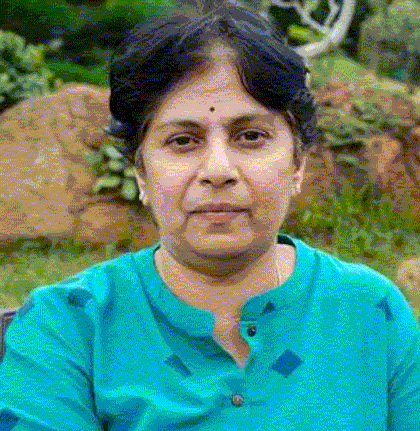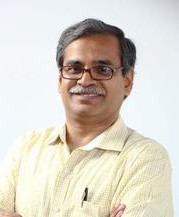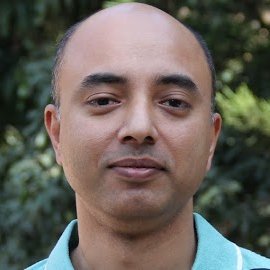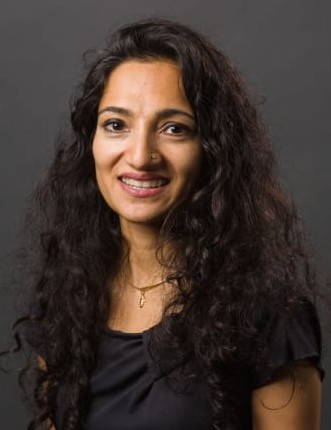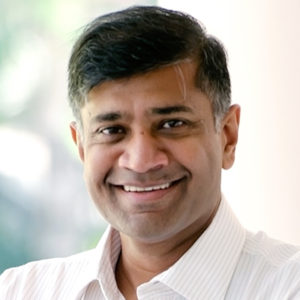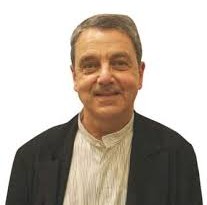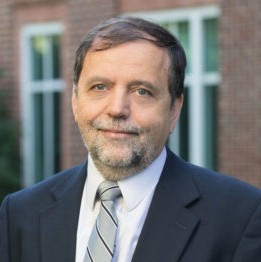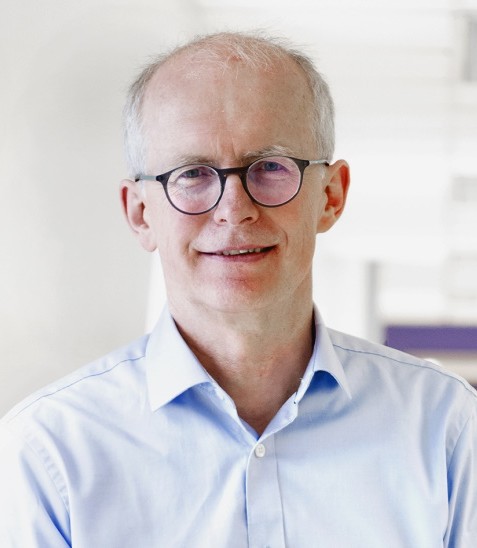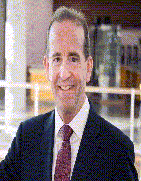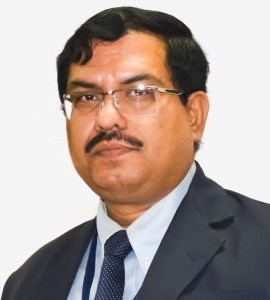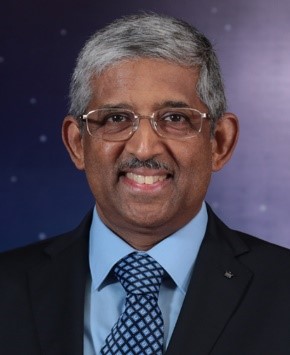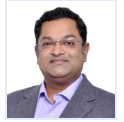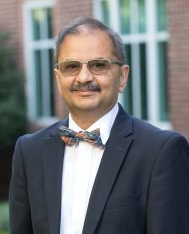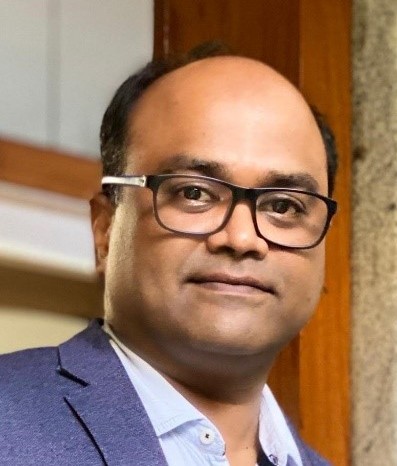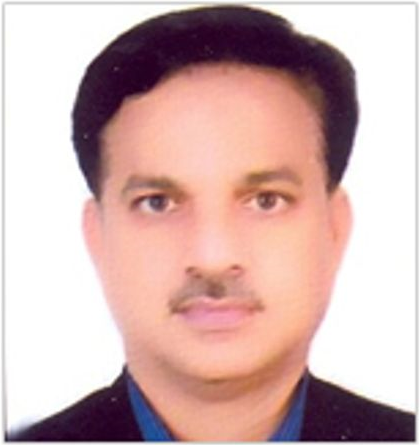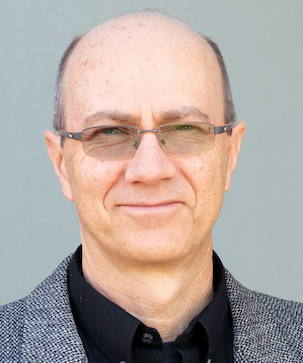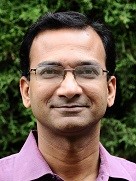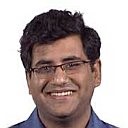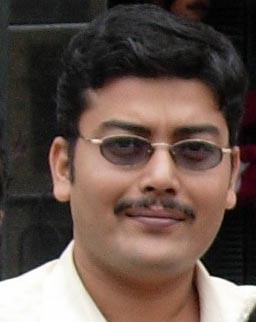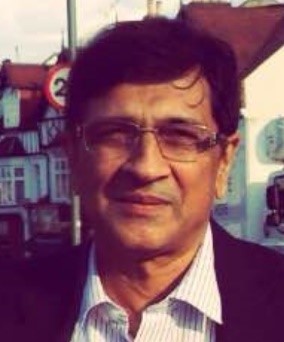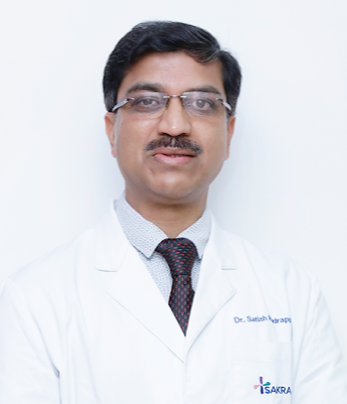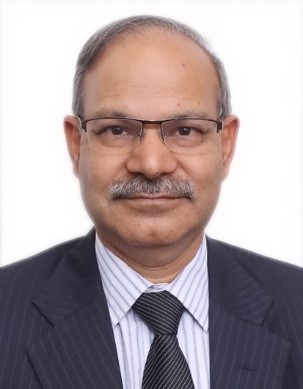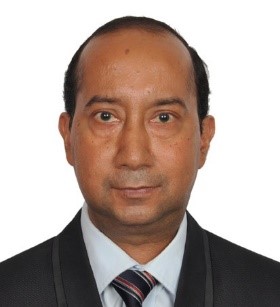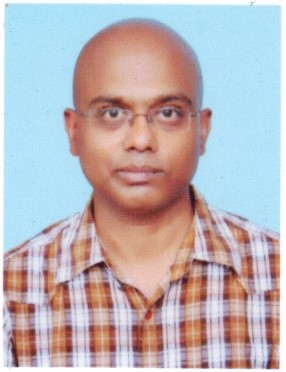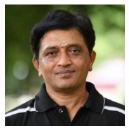D-HEALTH SYMPOSIUM 2021,IISc BENGALURU
HUMAN SYSTEM MODELLING
March 15-19, 2021,
4:00 PM - 8:00 PM (IST) on Virtual Platform
Symposium Flyer
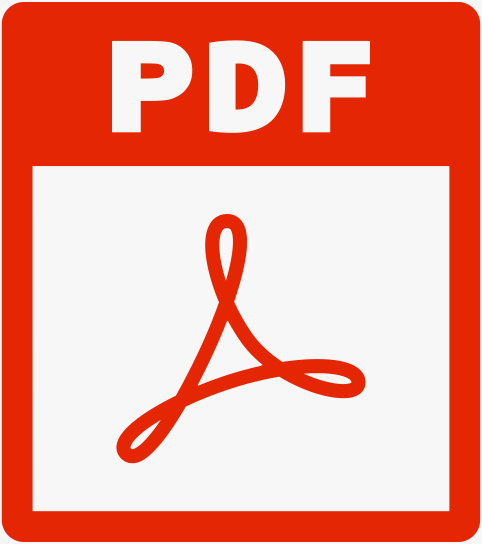
Day 1: March 15, 2021
Meeting Link: http://bit.ly/3sOlVfs
Theme: Modelling of Physiology and Immunology
Day 1 Video

Prof. Nagasuma Chandra
Multiscale modelling of pathogen
recognition and immune response
Nagasuma Chandra is a molecular systems biologist and bioinformatician and works on modelling complex biological processes and applying them to study human health and disease. Her research is interdisciplinary involving computational modelling of complex biological processes to address fundamental questions about how genome-wide molecular networks respond to a variety of pathological conditions and how that knowledge can be translated into biomedical applications. She is currently a Professor at the Department of Biochemistry, Indian Institute of Science and additionally affiliated with Bioengineering and Mathematical biology initiatives at the Institute. She received her PhD from the University of Bristol, UK. She is an elected fellow of the Indian Academy of Sciences.
Dr. K. V. Venkatesh
Systems Engineering Perspective of Human Physiology - Modeling Wellness, Health and Disease
K. V. Venkatesh is a professor in the department of chemical engineering at IIT Bombay. He had his undergraduate degree from IIT Madras and a doctoral degree from Purdue University, USA. Since 1993, he has been as a faculty at IIT Bombay. His area of expertise is in systems biology, applying engineering systems principles to biological phenomena. He has developed novel theoretical platforms to understand the underlying design principles in nature thereby linking genotype to phenotype. His lab has been focusing on analyzing genetic, signaling and metabolic networks in microorganisms and in higher organisms. He has close to 200 peer reviewed publications. He has won several accolades including Swaranjayanthi fellowship, INSA young scientist & INAE young engineering awards, elected fellow of National Science Academy. He has incubated a startup MetFlux research pvt limited, which offers specialized applications using system physiology models in drug discovery, disease management and wellness.
Prof. Rahul Roy
Modeling life cycle processes and resource allocation of RNA viruses during cellular infection
Rahul Roy is an Associate Professor in the Department of Chemical Engineering, IISc. Research in his lab aims to innovate and engineer novel technologies to help understand and manage infectious diseases using single molecule detection, single cell analysis, quantitative genomics and high-resolution imaging. His lab explores the molecular behaviour of biological macromolecules at the single molecule level as well as its distribution at the population level using highly sensitive optical and non-optical detection methods. Such understanding of pathogen biology and host-pathogen interactions will help in design new drugs, vaccines and intervention strategies against several infectious diseases.
Dr. Smita Krishnaswamy
Detecting structure and patterns in big biomedical data
Smita Krishnaswamy is an Associate professor in Genetics and Computer Science. She is affiliated with the applied math program, computational biology program, Yale Center for Biomedical Data Science and Yale Cancer Center. Her lab works on the development of machine learning techniques to analyze high dimensional high throughput biomedical data. Her focus is on unsupervised machine learning methods, specifically manifold learning and deep learning techniques for detecting structure and patterns in data. She has developed algorithms for non-linear dimensionality reduction and visualization, learning data geometry, denoising, imputation, inference of multi-granular structure, and inference of feature networks from big data. Her group has applied these techniques to many data types such as single cell RNA-sequencing, mass cytometry, electronic health record, and connectomic data from a variety of systems. Specific application areas include immunology, immunotherapy, cancer, neuroscience, developmental biology and health outcomes. Smita has a Ph.D. in Computer Science and Engineering from the University of Michigan.
Dr. Kas Subramanian
A virtual liver for drug development
Kas Subramanian leads the preclinical modeling and bioinformatics group at Applied Biomath. He has a strong interest in the role of mathematical methods to aid decision support in drug discovery and development. Prior to joining Applied Biomath, Kas led the Bioinformatics group at Syngene International which integrated data and created models to support programs across the drug discovery pipeline; from target identification and validation through lead optimization and clinical trial design. Prior to Syngene, he was Chief Scientific Officer at Strand Life Sciences Pvt. Ltd where he led the groups involved in the development of the Sarchitect Platform, the Virtual Liver and the interpretation platforms for NGS-based diagnostics. He headed the Collaborative R&D group for immunology products at Entelos and has also worked at Genetic Therapy Inc (Novartis) where he helped found a group to perform research in synthetic and hybrid vectors for gene delivery. In 2015, Kas was elected as a Fellow of the Indian National Academy of Engineering. He has a B.Tech. in chemical engineering from the Indian Institute of Technology, Bombay and an MS from SUNY at Buffalo. His Ph.D. is in Biomedical Engineering from the Johns Hopkins University, School of Medicine.
Day 2: March 16, 2021
Theme: Artificial Pancreas
Day 2 Video

Prof. Claudio Cobelli
Diabetes: Models, Control and New Ventures to Forget It
Claudio Cobelli is Emeritus Professor of Biomedical Engineering at University of Padova. From 2000 to 2011 he has been Chairman of the Graduate Program in Biomedical Engineering and of the Ph.D. Program in Bioengineering at the University of Padova. His main research activity is in the field of modeling and identification of physiological systems, especially the glucose system in diabetes. His research is currently supported by NIH, JDRF and European Comunity. He has published 565 papers in internationally refereed journals, co-author of 8 books and holds 10 patents with an h-index of 83 (Scopus) and 104 (Google). He is currently Associate Editor of IEEE Transaction on Biomedical Engineering and Journal of Diabetes Science & Technology. He is on the Editorial Board of Diabetes Technology & Therapeutics. Dr.Cobelli has been Chairman (1999-2004) of the Italian Biomedical Engineering Group, Chairman (1990-1993 & 1993-1996) of IFAC TC on Modeling and Control of Biomedical Systems and member of the IEEE EMBS AdCom Member (2008-2009). In 2010 he received the Diabetes Technology Artificial Pancreas Research Award. He is Fellow of IEEE and BMES.
Prof. Boris Kovatchev
A Century of Diabetes Technology: From Fingersticks to the Latest Artificial Pancreas Trials
Dr. Boris P. Kovatchev is Professor at the University of Virginia (UVA) School of Medicine, Adjunct Professor at UVA's School of Engineering and Applied Science, and the founding Director of the UVA Center for Diabetes Technology. Kovatchev has a 30-year track record in mathematical modeling and computing and is currently Principal Investigator of several projects dedicated to the development and testing of closed-loop control (known as the artificial pancreas) and decision support systems for diabetes. Kovatchev is author of over 220 peer-reviewed publications and holds 91 U.S. and international patents. In 2008 he received the U.S. Diabetes Technology Leadership Award; in 2011 he was named the UVA's Edlich-Henderson Inventor of the Year, and in 2013 he was the recipient of JDRF's Gerold and Kayla Grodsky Award presented for outstanding scientific contributions to diabetes research. In 2020, he was elected a Fellow of the National Academy of Inventors.
Prof. Roman Hovorka
CamAPS FX - an interoperable closed loop app
Roman Hovorka PhD FMedSci is Professor of Metabolic Technology Research at the Institute of Metabolic Science and Department of Paediatrics at University of Cambridge. He made seminal contributions to diabetes technology including the "Artificial Pancreas", a device that delivers insulin in glucose responsive fashion. He is Chief Investigator on several trials evaluating the Artificial Pancreas in populations such as young children and newly diagnosed type 1 diabetes.
Mr. Francis Doyle III
Engineering the Algorithms for the Artificial Pancreas
Frank Doyle is the John A. Paulson Dean of the Paulson School of Engineering and Applied Sciences at Harvard University, where he also is the John A. & Elizabeth S. Armstrong Professor. He received a B.S.E. degree from Princeton, C.P.G.S. from Cambridge, and Ph.D. from Caltech, all in Chemical Engineering. He has been recognized as a Fellow of multiple professional organizations including: IEEE, IFAC, AIMBE, and the AAAS. In 2016, he was inducted as a Fellow into the National Academy of Medicine for his work on biomedical control. In 2021 he was inducted as a Fellow of the National Academy of Engineering for his work on natural biological control systems and innovative engineering of diabetes control devices.
Prof. Radhakant Padhi
Artificial Pancreas for Type - 1 Diabetic Patients of India: Beginning of Long Journey
Prof. Radhakant Padhi earned his Masters in Aerospace Engineering from Indian Institute of Science, Bangalore in 1996, followed by his Ph.D. from Missouri University of Science and Technology (MST) - Rolla, USA, in 2001. After two years of postdoctoral studies, he joined the Dept. of Aerospace Engineering, Indian Institute of Science, Bangalore as a faculty member in December 2003, where currently he a full professor. He has briefly served the Defence Research and Development Organisation of India as a scientist during 1996-1997.
Day 3: March 17, 2021
Theme: Diabetes and Complications
Day 3 Video

Dr.V. Mohan
Preventing Diabetes Complications-Hope or reality?
Dr. V. Mohan is the Chairman and Chief of Diabetology at Dr. Mohan's Diabetes Specialities Centre at Chennai in South India which is an IDF Centre of Excellence in Diabetes Care. Dr. Mohan oversees a chain of 50 diabetes centres across 8 states of India and has over 5,00,000 registered diabetes patients in his centres. He is also President and Director of the Madras Diabetes Research Foundation which is Asia's largest stand-alone diabetes research centre.
Deeply interested in research from his undergraduate medical student days, Dr. Mohan has published over 1340 papers in peer reviewed journals. This includes 869 original articles, 308 review articles and invited editorials and 168 chapters to text-books on Diabetes. His research has attracted over 128,000 citations and has a 'h index' of 135.
Prof. Pranay Goel
Modelling the continuous glucose monitoring time series: Inferring the type 2 diabetic state at high resolution
Pranay Goel is an alumnus of IIT Bombay's Engineering Physics batch of 1998. He is a PhD in Physics from the University of Pittsburgh (2003), and has held postdoctoral positions at The Ohio State University and the US National Institutes of Health. He has been on the faculty of IISER Pune since 2009.
Their lab is interested in studying biological systems using mathematical (analytical, computational and algorithmic) approaches. While their primary focus areas are mathematical physiology and type 2 diabetes, in recent years they have also been studying predictive modeling in healthcare, and precision (personalized) medicine.
Dr. Ananda Basu
Landmark Clinical Trials of Artificial Pancreas
Dr. Ananda Basu, MD., FRCP (UK) is the Harrison Professor of Medicine in the Division of Endocrinology at the University of Virginia. He received his MD degree from Jawaharlal Institute of Post Graduate Medical Education and Research (JIPMER) in Pondicherry, India in 1986 and thereafter trained in Endocrinology at the General Hospital in Birmingham, UK. In 1993, he joined the Mayo Clinic in Rochester, MN where he trained as a clinician-investigator in the area of integrative physiology of diabetes in the laboratory of Dr. Robert Rizza along with a clinical fellowship in Endocrinology. Thereafter, he joined the Mayo faculty in 2000 where he rose to the rank of full Professor in 2011. He was recently recruited to the UVA faculty as part of a strategic initiative to bolster the clinical component of the Center of Diabetes Technology and translational physiology research in type 1 diabetes at UVA.
Dr. Basu is the author of almost 200 peer-reviewed publications in major journals including the New England Journal of Medicine, Journal of Clinical Investigation, Diabetes Care, Diabetes and the American Journal of Physiology. He is on the editorial board of Diabetes Care, a flagship journal of the American Diabetes Association and was an Associate Editor of the Diabetes Technology and Therapeutics journal. He has served as a grants reviewer for the National Institutes of Health and abstract reviewer for the American Diabetes Association for many years. He has received numerous awards as a clinician and teacher during his career including the Department of Medicine Laureate Award, Best Teacher Award and the Randall Sprague Award from Mayo Clinic and the Excellence in Research Award from the University of Virginia. He has actively participated as a WHO fellow in a 5-year international program that educated several hundred promising diabetologists in China and Europe. He is also the Associate Program Director of a NIH funded T32 training grant in Metabolism at UVA that aims to train the next generation of clinical and basic science investigators in Metabolism. "Artificial Pancreas", a device that delivers insulin in glucose responsive fashion. He is Chief Investigator on several trials evaluating the Artificial Pancreas in populations such as young children and newly diagnosed type 1 diabetes.
Prof. Giridhar R Babu
Primary prevention of Type 2 Diabetes mellitus: Policy and Technology interventions
Giridhara R Babu is Professor and Head - Life Course Epidemiology at Public Health Foundation of India. He has a medical degree (MBBS) from Kasturba medical college Manipal and has completed MPH and PhD from UCLA (University of California Los Angeles). He has two decades of experience in public health research, practice and academics. He began his career at the Center for Community Medicine of the All India Institute of Medical Sciences, New Delhi as a Junior Resident. Next, he worked with World Health Organization where he led the efforts in stopping polio transmission in the state of Karnataka. He initiated advocacy for Measles surveillance in Karnataka leading to constitution of Multi Year Plan (MYP) for Measles elimination in India. He is awarded the prestigious intermediate and now the senior fellowship of Wellcome Trust-DBT India Alliance to start and expand cohort study. The cohort is named as MAASTHI (Maternal Antecedents of Adiposity Studying the Transgenerational role of Hyperglycemia and Insulin).
Giridhara has over 100 papers published in national and international high impact journals. He has served on several national and international committees. Some of them include Lancet Commission Task force on COVID19, ICMR National Task Force for COVID-I9 and the Technical Analysis Committee of the Government of Karnataka. He is the regional representative for LMICs on the DoHaD international society.
He is actively involved in writing articles for general public, providing his expert opinion to media houses and consultation to several states. His work on COVID-19 can be accessed here
https://giridhar.org/covid-19/.
Prof. Rajesh Khadgawat
India is the world capital for Diabetes! What makes us so vulnerable?
Prof. Rajesh Khadgawat is a Professor at the All Indian Institute of Medical Sciences. He received the Doctor of Medicine (M.D) from the Jawaher Lal Nehru Medical College, Rajasthan in 1994 and Doctorate of Medicine (D.M) from Sanjay Gandhi Post Graduate Institute of Medical Sciences in 1998. He has published more than 120 research papers and presented 72 papers. He got the best paper award for more than 14 papers in various national and international conferences.
Day 4: March 18, 2021
Theme: COVID-19 and Cancer
Day 4 Video

Prof. Ian K Craig
Feedback control and the modelling of pandemics: A South African COVID-19 case study
Ian Craig received the B.Eng. degree in electronic engineering from the University of Pretoria, the S.M. degree from the Massachusetts Institute of Technology, and the Ph.D and M.B.A. degrees from the University of the Witwatersrand. He has been a professor in the Department of Electrical, Electronic and Computer Engineering at the University of Pretoria since 1995 where he heads the control systems group. Previously he was part of the Measurement Control Division of Mintek where he was involved in the design, implementation and commercialisation of advanced controllers for the mineral processing industry. His research interests include model-based control and optimisation in the process industries, as well as the modelling and control of infectious diseases. Ian was Editor-in-Chief of the journal Control Engineering Practice from 2005-2010 and President of the International Federation of Automatic Control (IFAC) from 2011- 2014. He is the current Chair of the IFAC Foundation Board.
Prof. Rajesh Sundaresan
Optimal design of serosurveys for disease burden estimation
Abstract
The first state-wide COVID-19 serosurvey in Karnataka, a state in India with a population of about 70 million, was done in September 2020 when the infection was near a peak. For accurate total disease-burden estimation at such times, one needs to estimate the active infection in the population along with the seroprevalence of antibodies to the virus. This entails the use of multiple tests for the detection of antigens, viral RNA, and antibodies. Given a family of such tests, their sensitivities, specificities, and costs, what are good survey designs? In this talk, we will discuss a model for disease prevalence, the so-called c-optimal design criterion, and its solution. We will also discuss other criteria and their use in Karnataka's second state-wide serosurvey which concluded only recently.
The talk is based on joint work with collaborators from the Indian Institute of Public Health, Indian Statistical Institute, Strand Life Sciences, and the Indian Institute of Science.
Biography
Rajesh Sundaresan is Professor at the Indian Institute of Science. He is currently on sabbatical leave visiting Strand Life Science and the Indian Statistical Institute. His research interests are in communication, computation, and control over networks. For some recent COVID-19 modelling and epidiological work, please visit his webpage:
https://ece.iisc.ac.in/~rajeshs.
Dr. Mohit Kumar Jolly
Shapeshifters in cancer: how do cancer cells switch states during metastasis?
Dr. Mohit Kumar Jolly leads the Cancer Systems Biology group at the Centre for Bio Systems Science and Engineering, Indian Institute of Science. He has made seminal contributions to decoding the emergent dynamics of cell-state transitions in cancer metastasis, through mathematical modeling of regulatory networks. His work has featured on the cover of Journal of Clinical Medicine, Cancer Research, and Molecular and Cellular Biology, and he won the 2016 iBiology Young Scientist Seminar Series - a coveted award for communicating one's research to a diverse audience. Currently, his lab focuses on developing mechanism-based and data-based mathematical modeling for cancer progression, working in close collaboration with experimental cancer biologists and clinicians. He co-chairs the Mathematical Oncology subgroup of the Society for Mathematical Biology (SMB) of over 250 members.
Dr. Ram Rup Sarkar
Modeling Tumor Growth Dynamics and Regression using Immunostimulation and Chemotherapy
Dr. Ram Rup Sarkar obtained his B.Sc. and M.Sc. in Mathematics and Applied Mathematics from University of Calcutta, Kolkata, and carried out his Ph.D. from Indian Statistical Institute, Kolkata. He then received the prestigious Humboldt Research Fellowship for post-doctoral studies at Department of Mathematics and Computer Sciences, Institute for Environmental Systems Research, Osnabrueck, Germany. Returning to India, in 2005, he joined CSIR-Centre for Cellular and Molecular Biology, Hyderabad as Scientist and Senior Scientist, and then moved to CSIR-National Chemical Laboratory, Pune. His main research area is application of theoretical and computational methods for understanding Biochemical Pathways, Cancer Biology, Infectious Diseases, Drug Discovery, Big Data Analytics, Artificial Intelligence etc. The primary interest is to study non-linearity, spatio-temporal patterns, and evolutions of different complex biological systems - from genetic to ecological. This also includes development of new mathematical/statistical techniques to compare theoretical outcomes with experimental data analysis. Currently involved in abstract and formal system-level modelling that may have implications in biological systems and constitutes a basis for system level understanding (System Biology) and may be useful for drug discovery with potential application in pharmaceutical industry.
He has published more than 75 research papers and has visited several countries including Germany, Italy, France, Belgium, USA etc. He has lead several projects under different grants from Govt. of India. He has delivered more than 100 lectures in India and abroad. He has also reviewed several research papers from different internationally and nationally reputed journals and is serving as Editorial board member of Journal of Informatics and Data Mining. In recognition to his work, he has received several awards and fellowships, such as, INSA Young Scientist Medal, Young Scientist Award in Mathematics at the 89th Indian Science Congress, Indo-US Research Fellowship Award, CSIR-DAAD Exchange of Scientists' Fellowship, Associate Fellow of Indian Academy of Sciences, Bangalore etc. He has more than 20 years of teaching experience and guided several PhD & Masters students. He is also affiliated to Academy of Scientific & Innovative Research (AcSIR) as a Professor and Dr. Vikram Sarabhai Institute of Cell & Molecular Biology, MS University of Baroda, Vadodara as an Adjunct Faculty. He has also served as Guest faculty in different Institutes and Universities.
Prof. Prasun Kumar Roy
Spontaneous Arrest of Cancer as recorded in half of general population: Replication of this process on animal models and patients
Dr. Roy is Professor and Head, School of Bio-Medical Engineering, Indian Institute of Technology, B.H.U., Varanasi. He had earlier been Director / Incharge, National Brain Research Centre, Gurgaon. At IIT (BHU) he is also Coordinator of the Healthcare domain, National Mission on Data Analytics & Predictive Technology, sponsored by DST. Dr Roy was trained in radiology at the Institute of Postgraduate Medical Education and Research, Calcutta University, and had been Research Scientist at The University of Connecticut, Storrs. Dr Roy has received the Tata Innovation Fellowship Award, Dept. of Bio-Technology, Govt. of India. He is a Fellow of the National Academy of Medical Sciences, the Indian National Academy of Engineering, and the National Academy of Sciences - India.
Day 5: March 19, 2021
Theme: Biomechanics and Assistive Tech
Day 5 Video

Dr. Satish Rudrappa
Biomechanics of Spine & it's importance in spine surgery techniques
Dr. Satish Rudrappa is a distinguished Senior Neuro Surgeon in India. He has done his M.B.B.S from Karnataka Medical College, Hubli in the year 1990. He completed M. Ch (Neurosurgery) at NIMHANS in the year 1995 & awarded gold medal for "Best Outgoing Student". He pursued Fellowship in Complex Spine Surgery from Detroit Medical Centre, Detroit, Michigan, USA, Thoracoscopic Spine training from Barrow Neurological Institute, Phoenix, USA. Fellow of Microvascular Anastomosis at Henry Ford Hospital, USA. Presently he is the Director for Institute of Neurosciences, at Sakra World Hospital, Bangalore & also a visiting Professor of Neurosurgery at Hokkaido University, Sapporo, Japan. He has been inducted as Fellow of Royal College of Surgeons (FRCS), Glasgow, UK for his outstanding contribution as surgeon & teacher in the field of Neurosurgery. In the past, he was visiting professor, department of neurosurgery at Louisiana state university, Shreveport, Louisiana, USA & Education Officer" of AOSpine Asia Pacific and Immediate past President of Neurosurgeons spine Society of India. He has given innumerable lectures related to Neurosurgery & spine surgery across the world & at national level, published many scientific papers in peer reviewed journals.
Dr. K. K. Deepak
Physiological adaptations to changing profiles of Bio-Mechano-Sensing: Some applications to Yoga and Space
Dr. Deepak obtained his MBBS degree from GMC, Bhopal in 1981 and MD degree in 1984 & PhD Degree in Physiology in 1990 from AIIMS, New Delhi. He has been awarded DSc degree from SVYASA University from Bengaluru. He has been serving as faculty in the Dept of Physiology since 1987. Currently he is heading the department and also serving as Dean, Examinations at AIIMS New Delhi.
Dr Deepak set up the Autonomic Function Lab in the department of Physiology in 1989. It was the first lab of its kind in the country. This lab provides clinical services, research facility and training. He has been directing research into the Autonomic investigation of various clinical disorders. He pioneered the development of Heart Rate Variability (HRV) and disseminated it throughout the country. Realizing the need of vascular assessment in autonomic testing, he set up another lab for evaluating human vascular functions in 2000. His team lead to development of indigenous software for quantification of autonomic tone by HRV & vascular tone by Blood Pressure Variability (BPV). His team has developed a cloud base program for centralized HRV system for country.
He has published 187 full length indexed research papers which have more than 3200 citations with H index of 30 in Google Scholar.
Dr. Anirban Guha
Modelling of Human Body Response to Automobile Induced Vibrations
Dr. Anirban Guha completed his M.Tech. and Ph.D. from IIT Delhi and thereafter has been a faculty of Mechanical Engineering, IIT Bombay from 2005. His Ph.D. was on application of Artificial Neural Networks for modeling industrial processes. Thereafter, he has studied the efficacy of other machine learning algorithms in different practical scenarios. His wide ranging research interests also include machine design (with focus on kinematics), robotics, design optimization, lighter-than-air systems, and simulation of structures subjected to high strain rates. He has been involved in the development of remotely operated vehicles for reconnaissance and recovery for the army and internal security forces and various safety related mechanical devices for the industry.
Dr. Jitendra Prasad
Invertible Mathematical Model of Cortical Bone's Adaptation to Mechanical Loading
Dr. Jitendra Prasad is currently working with Indian Institute of Technology (IIT) Ropar as an Associate Professor. After graduating with a B.Tech.(Hons.) from IIT Kharagpur in 1997, he worked with Indian Register of Shipping at Mumbai for 4 years. He then did his M.Eng. at Nanyang Technological University (NTU), Singapore. With a Ph.D. degree in Mechanical Engineering from Michigan State University (MSU), he worked as a postdoctoral fellow in Orthopaedics & Sports Medicine at the University of Washington at Seattle. In April 2011, he joined IIT Ropar as an Assistant Professor in the department of Mechanical Engineering.
Dr. Prasad's research is focused on computational engineering applied to design, analysis, innovation and discovery. In particular, he is interested in areas spanning applied mechanics, engineering design, optimization, bone biology and biomechanics. His research group at IIT Ropar is particularly focused on development of novel theoretical and computer models of bone fracture healing and bone's adaptation to exogenous mechanical loading.
Dr. Prasad has been the founding member of the Biomedical Engineering (BME) Program at IIT Ropar, and has officially served as the Coordinator of the BME Program, which was the precursor to the Department of Biomedical Engineering existing today at IIT Ropar. He has also been interested in curriculum development and pedagogy, and was the chairman of the committee that developed new undergraduate curriculum, which has been implemented at IIT Ropar starting 2017.
Dr. S. N. Omkar
Studies on Yoga and Biomechanics
Dr. S.N. Omkar is currently working as a Chief Research Scientist at the Department of Aerospace Engineering, Indian Institute of Science, and Bangalore. His research involves both computational and experimental approaches. Dr. Omkar is pursuing several projects and research work in the area of satellite image processing. He provides and assists Diploma, B. E, M. Sc, M. Tech students to take internship to pursue research in computational intelligence and computing (parallel and distributed) field.

